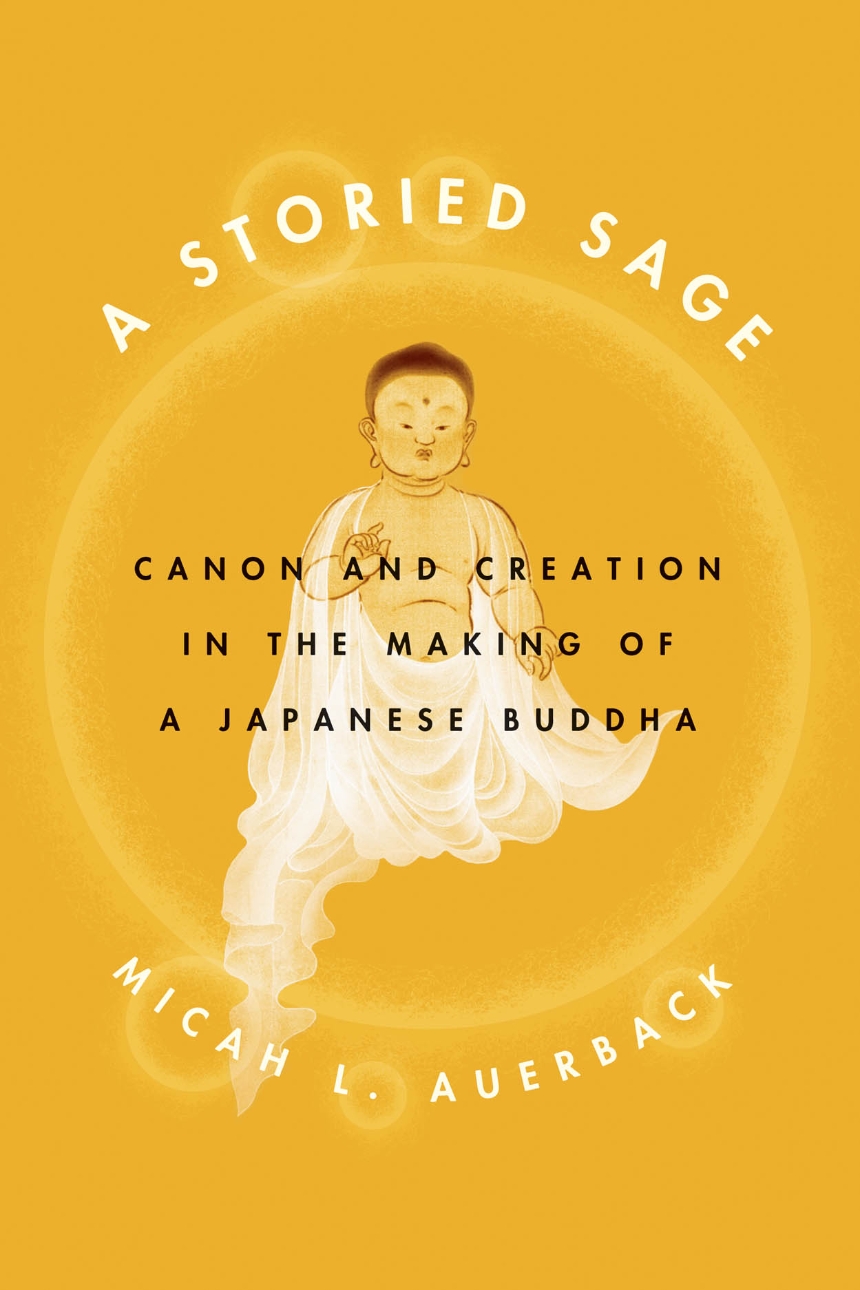A Storied Sage
Canon and Creation in the Making of a Japanese Buddha
Since its arrival in Japan in the sixth century, Buddhism has played a central role in Japanese culture. But the historical figure of the Buddha, the prince of ancient Indian descent who abandoned his wealth and power to become an awakened being, has repeatedly disappeared and reappeared, emerging each time in a different form and to different ends. A Storied Sage traces this transformation of concepts of the Buddha, from Japan’s ancient period in the eighth century to the end of the Meiji period in the early twentieth century.
Micah L. Auerback follows the changing fortune of the Buddha through the novel uses for the Buddha’s story in high and low culture alike, often outside of the confines of the Buddhist establishment. Auerback argues for the Buddha’s continuing relevance during Japan’s early modern period and links the later Buddhist tradition in Japan to its roots on the Asian continent. Additionally, he examines the afterlife of the Buddha in hagiographic literature, demonstrating that the late Japanese Buddha, far from fading into a ghost of his former self, instead underwent an important reincarnation. Challenging many established assumptions about Buddhism and its evolution in Japan, A Storied Sage is a vital contribution to the larger discussion of religion and secularization in modernity.
Micah L. Auerback follows the changing fortune of the Buddha through the novel uses for the Buddha’s story in high and low culture alike, often outside of the confines of the Buddhist establishment. Auerback argues for the Buddha’s continuing relevance during Japan’s early modern period and links the later Buddhist tradition in Japan to its roots on the Asian continent. Additionally, he examines the afterlife of the Buddha in hagiographic literature, demonstrating that the late Japanese Buddha, far from fading into a ghost of his former self, instead underwent an important reincarnation. Challenging many established assumptions about Buddhism and its evolution in Japan, A Storied Sage is a vital contribution to the larger discussion of religion and secularization in modernity.
320 pages | 12 halftones | 6 x 9 | © 2016
Asian Studies: East Asia
History: Asian History
Religion: South and East Asian Religions
